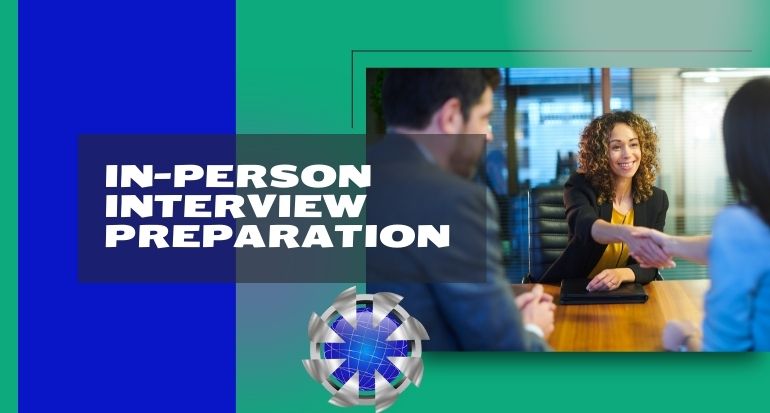Preparing for Your In-Person Interview: A Comprehensive Guide
The prospect of an in-person interview can be both exciting and nerve-wracking. Regardless of your career level, the pressure of making a good impression and selling your skills can be challenging. However, a little preparation can go a long way in alleviating anxiety and setting you up for success. Here are some tips to ensure you’re fully prepared for your face-to-face interview:
Understand the Interview Process:
Find out how many rounds of interviews there will be, and what each round will entail. Knowing this will allow you to prepare accordingly. Keep in mind that even if you’ve made it to the final round, you should never become complacent. Treat each interview as an opportunity to demonstrate why you’re the best candidate for the job.
Make a Great First Impression:
- Know Your Interviewers: Ask for an itinerary ahead of the interview. Knowing the names, designations, and departments of your interviewers can be immensely helpful. Look them up on LinkedIn to understand their roles within the company.
- Dress Appropriately: Ask about the company’s dress code and plan your attire accordingly. When in doubt, it’s better to be overdressed than underdressed.
- Research the Company: Understand the company’s history, products, services, and key executives. This knowledge can be useful during the interview, demonstrating your interest and commitment to the role.
- Prepare Questions: Having relevant, insightful questions to ask your interviewers can show your genuine interest in the role and the company.
- Plan Your Route: Make sure you know where you’re going and how to get there, including where to park and who to ask for when you arrive. Aim to arrive 5-10 minutes early.
- Stay Professional and Friendly: Maintain a friendly demeanor and be courteous to everyone you meet.
- Take the Offered Drink: You might find yourself speaking a lot, and having a drink on hand can be helpful.
- Bring Your Documents: Always bring multiple copies of your resume and any other supporting documents, such as certifications or commendation letters.
- Note-Taking: Keep a notepad handy for jotting down key points, questions, or to illustrate your answers.
- Listen and Follow Lead: Allow your interviewers to guide the conversation. Keep your answers concise and on-topic.
- Ask Questions: When asked if you have any questions, take the opportunity to ask for clarity on any points. Avoid bringing up compensation unless the interviewer does so first.
- Thank Them: Collect business cards and send a thank you email after the interview. If you can’t get everyone’s contact information, ask your recruiter to forward your thank you messages.
- Express Your Interest: If you’re interested in the job, make sure your interviewers know this. Ask when you can expect to hear back about the next steps.
- Debrief with Your Recruiter: Share your interview experience with your recruiter as soon as possible. If you don’t hear back from them after a reasonable amount of time, don’t hesitate to follow up.
Preparation is key to performing well in an interview and making a positive impression. So, what’s your story? Have you ever felt underprepared for an interview, and did it cost you the job? What would you do differently next time?
Anjela Mangrum, the founder of Mangrum Career Solutions, is your go-to expert for executive recruitment in the manufacturing industry! She’s passionate about connecting top-tier candidates with exciting opportunities in the field. Connect with her on LinkedIn and join the MCS LinkedIn group for the latest in manufacturing recruitment news and trends. Let’s partner in your hiring success!


